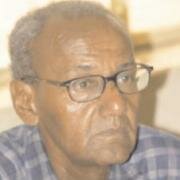The drone campaign has undermined other smart power approaches, including that old standby diplomacy
, not only by antagonizing potential interlocutors but also by killing a good number of them. Along with the raid that killed Osama bin Laden, often cited as one of Obama’s signal accomplishments, the drone war has by now provoked a slow-motion rupture in relations between Washington and Islamabad. The covert cyber-war initiative against Iran’s nuclear program, conducted with Israeli cooperation, produced both the Stuxnet worm, which wreaked havoc on Iranian centrifuges, and the Flame virus, which monitored its computer network. Instead of vigorously pursuing diplomatic solutions -- such as the nuclear compromise that Brazil and Turkey cobbled together in 2010 that might have defused the situation and guaranteed a world without an Iranian bomb -- the Obama administration acted secretly and aggressively. If the United States had been the target of such a cyber attack, Washington would have considered it an act of war. Meanwhile, the United States has set a dangerous precedent for future attacks in this newest theater of operations and unleashed a weapon that could even be reverse-engineered and sent back in our direction.
Nor was diplomacy ever actually on the table with North Korea. The Obama team came in with a less than half-hearted commitment to the Six Party process -- the negotiations to address North Korea’s nuclear program among the United States, China, Russia, Japan, and the two Koreas, which had stalled in the final months of George W. Bush’s second term. In the National Security Council, Asia point man Jeffrey Bader axed a State Department cable that would have reassured the North Koreans that a U.S. policy of engagement would continue. “Strategic patience” became the euphemism for doing nothing and letting hawkish leaders in Tokyo and Seoul unravel the previous years of engagement. After some predictably belligerent rhetoric from Pyongyang, followed by a failed missile launch and a second nuclear test, Obama largely dispensed with diplomacy altogether.
Hillary Clinton did indeed move quickly to increase the size of the State Department budget to hire more people and implement more programs to beef up diplomacy. That budget grew by more than 7% in 2009-2010. But that didn’t bring the department of diplomacy up to even $50 billion. In fact, it is still plagued by a serious shortage of diplomats and, as State Department whistleblower Peter van Buren has written, “The whole of the Foreign Service is smaller than the complement aboard one aircraft carrier.” Meanwhile, despite a persistent recession, the Pentagon budget continued to rise during the Obama years -- a roughly 3% increase in 2010 to about $700 billion. (And Mitt Romney promises to hike it even more drastically.) Like most Democratic politicians, Obama has been acutely aware that hard power is a way of establishing political invulnerability in the face of Republican attacks. But the use of hard power to gain political points at home is a risky affair. It is the nature of this "dumb power" to make the United States into a bigger target, alienate allies, and jeopardize authentic efforts at multilateralism.
Despite its rhetorical flexibility, “smart power” has several inherent flaws. First, it focuses on the means of exercising power without questioning the ends toward which power is deployed. The State Department and the Pentagon will tussle over which agency can more effectively win the hearts and minds of Afghans. But neither agency is willing to rethink the U.S. presence in the country or acknowledge how few hearts and minds have been won. Modified from Tomdispatch
-
Periscope: Arab Spring Seventh AnniversaryNext >



